-
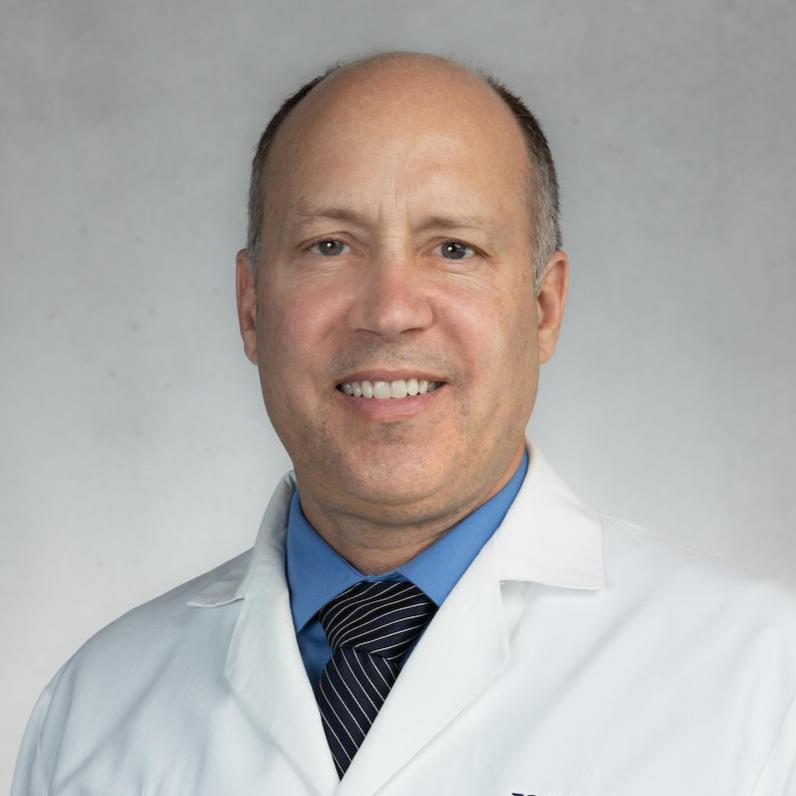
Chair and Professor of Neurosciences
Dr. Brewer is the Principal Investigator for the UC San Diego Human Memory Laboratory. His research uses functional and structural magnetic resonance imaging (MRI) to study memory processes in volunteers with healthy memory and in patients with memory difficulties, such as in Alzheimer's disease (AD). This research focuses upon the medial temporal lobe (MTL), which shows selective damage early in the course of AD.
-
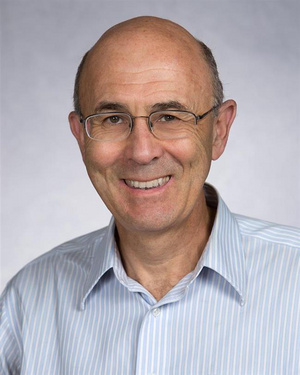
Professor of Neurosciences
Program Director of Clinical Fellowship for Dementia
Director, Shiley-Marcos Alzheimer's Disease Research Center (ADRC)Dr. Galasko is interested in clinical and basic research on Alzheimer's disease (AD) and other neurodegenerative disorders. In particular, he has focused on biological markers and genes related to AD, and understanding the clinical course and ways to intervene in AD. He has specifically done research on cerebrospinal fluid markers, subtypes of Alzheimer's Disease, and genetic risk factors of AD.
-
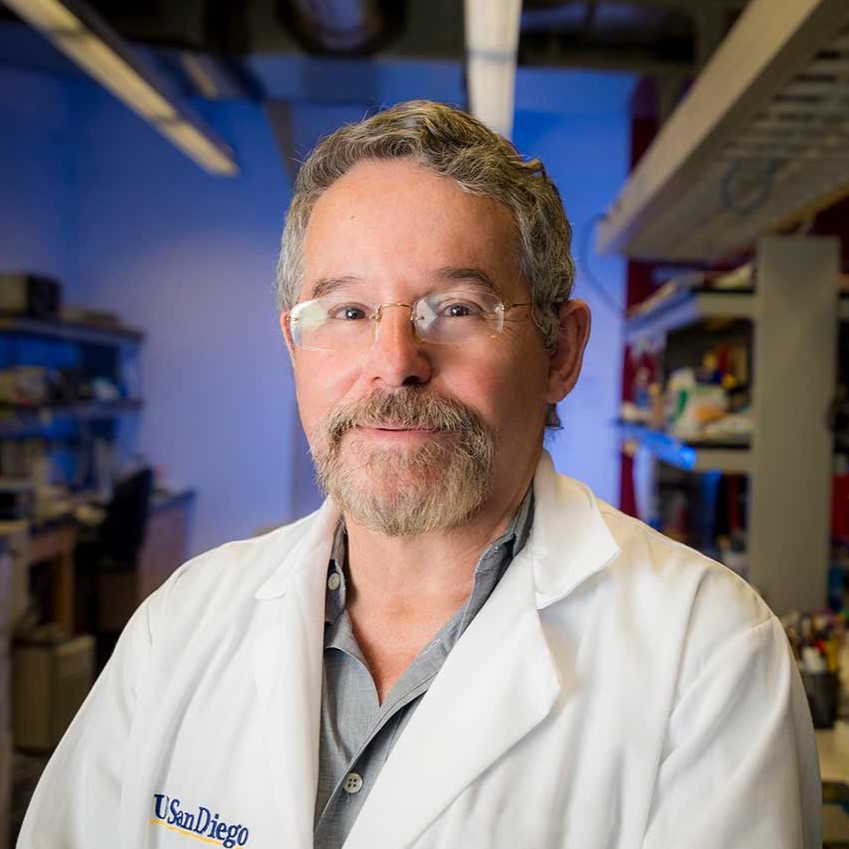
SAIC Endowed Chair Distinguished Professor
Chair of the Department of NanoengineeringProf. Wang's research focuses on the field of nanobioelectronics and nanorobotics in the Laboratory for Nanobioelectronics. Prof. Wang's contributions have greatly enhanced the power and scope of applications of nanomachines and have had major impacts upon the fields of wearable sensors, the use of nanomaterials in bioanalysis, and upon the growing popularity of electroanalytical techniques.
-
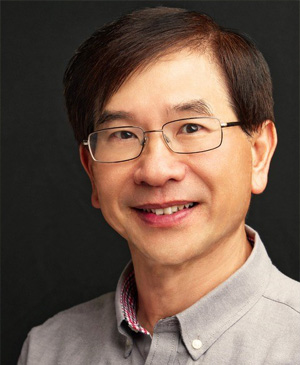
Adjunct Professor of Bioengineering
Co-Director, Center for Advanced Neurological Engineering Institute for Neural Computation (INC) and Institute of Engineering in Medicine (IEM)
Associate Director, Swartz Center for Computational Neuroscience and Institute for Neural Computation (INC)
Dr. Jung's long-range goal for research is to integrate methods in neural engineering and computation with basic scientific and clinical knowledge of the nervous system to improve diagnosis, treatment, and prevention of neurological diseases. -
Johannes Schlachetzki
Physician Scientist
NeurologistJohannes Schlachetzki is a clinician-scientist with a special focus on neuroimmunology, epigenomics, and somatic mosaicism in the context of neurodegenerative diseases. As a neurologist, he specialize in the diagnosis and treatment of movement disorders. His experiences across these diverse domains have allowed him to identify key pathogenic steps and validate clinically relevant disease-modifying treatments for neurological diseases.
-
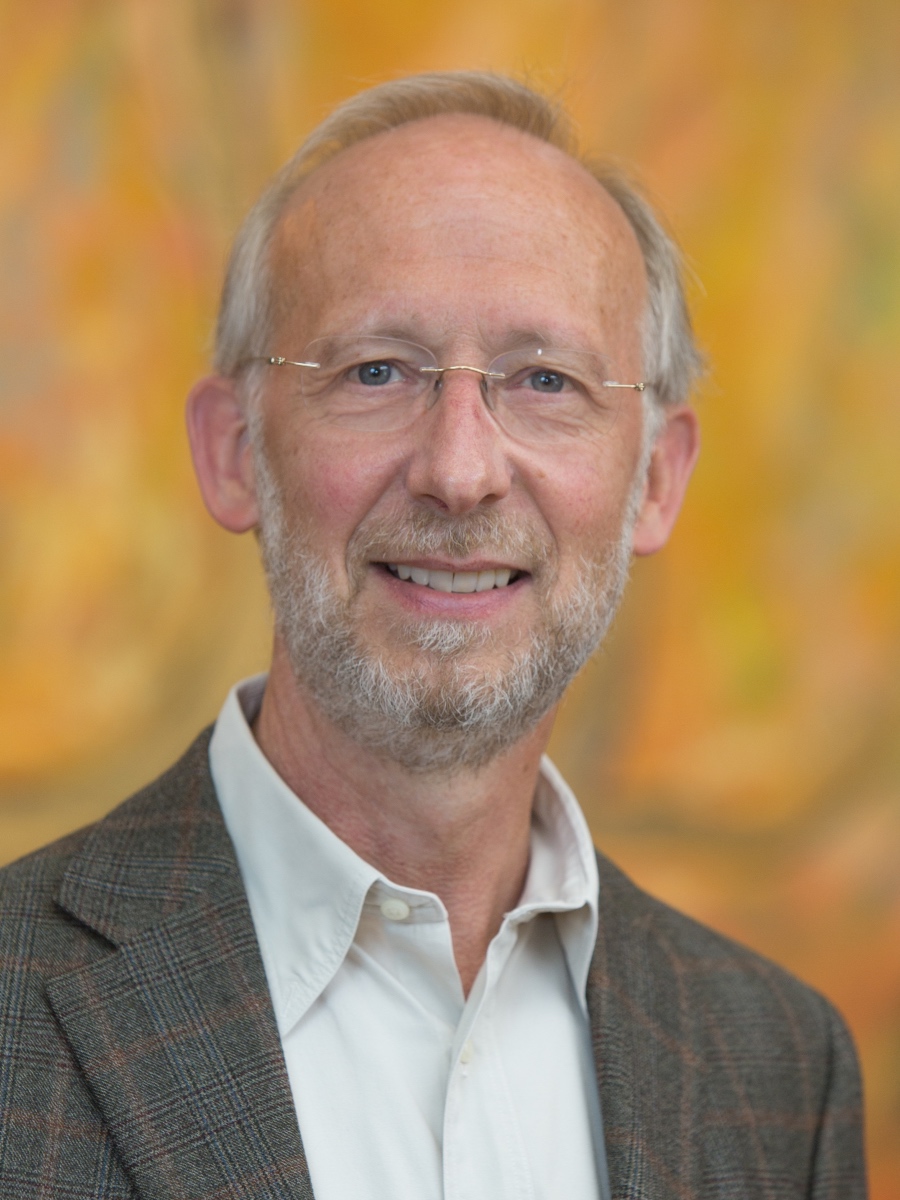
Distinguished Professor of Neurosciences
Chair of Department of Cellular and Molecular MedicineDr. Cleveland's laboratory has focused in two major directions. Molecular genetics and cell biology of mammalian chromosome movement and spindle assembly during mitosis: interests are in deciphering the mitotic checkpoint, major mechanism in mammals that insures delivery of every chromosome to each daughter cell during mitosis. Molecular genetics of axonal growth and motor neuron disease: Using transgenic and gene targeted mice, the principles that support axonal growth are being identified as are ways in which errors in the scaffolding structure within axons lead to disease.
-
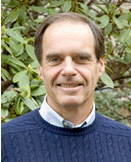
Harvey Checkoway, Ph.D., M.P.H.
Adjunct Professor of Neurosciences
Dr. Checkoway's main areas of research and teaching are occupational and environmental risk factors for chronic diseases. Recent examples of research projects for which he is principal investigator are studies of: environmental and genetic risk factors for Parkinson's disease; occupational exposures and risks for cancer and parkinsonism among Shanghai women textile workers; parkinsonism among welders.
-
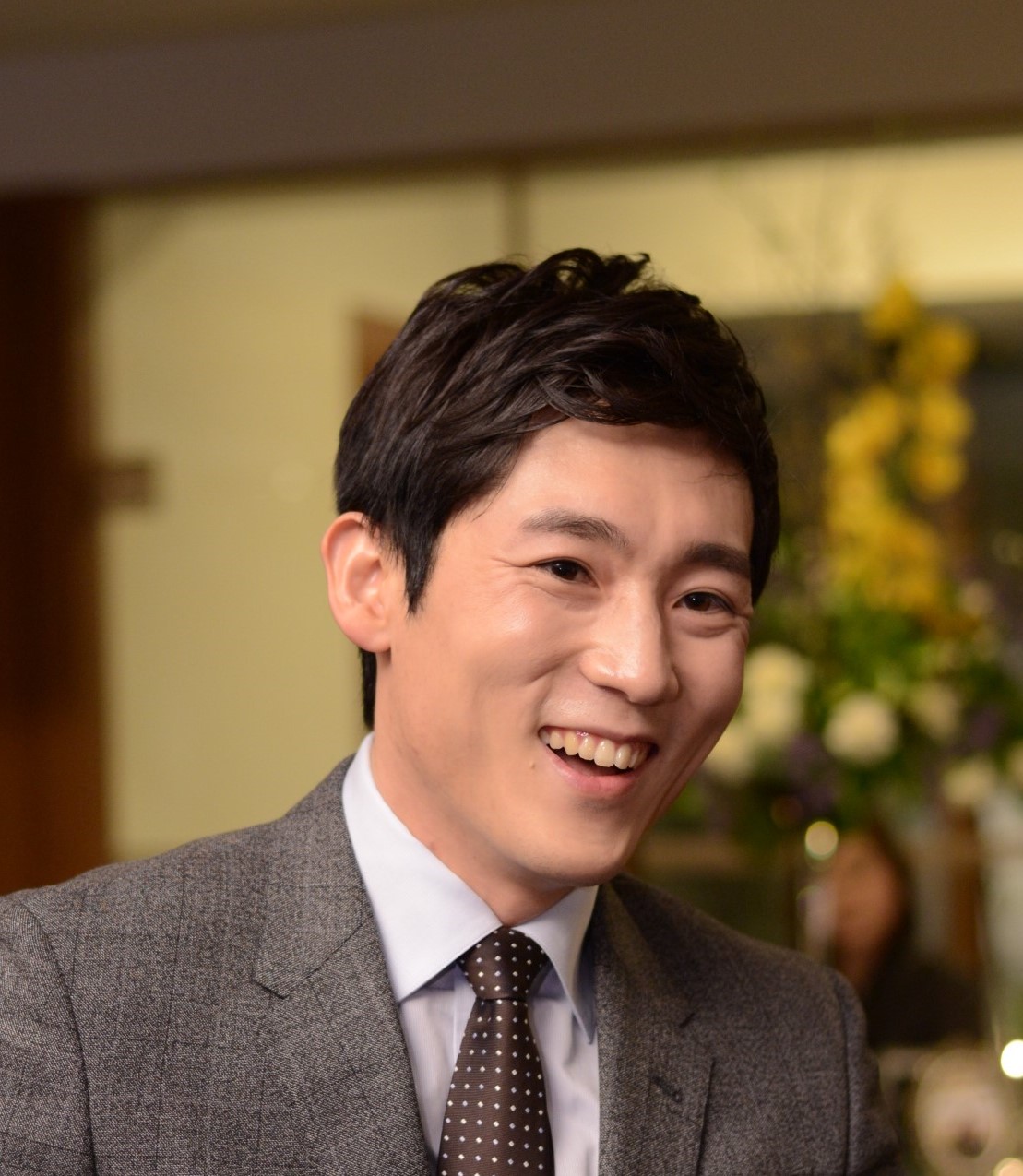
Hyunkeun (Ryan) Cho, Ph.D.
Professor of Biostatistics and Neurosciences
Dr. Hyunkeun Cho holds joint faculty appointments in the Department of Neuroscience and the Biostatistics Division at Herbert Wertheim School of Public Health, UCSD. He also serves as the Director of the Biostatistics Core at the Alzheimer’s Disease Cooperative Study. Dr. Cho’s dedication to neurodegenerative disease research is particularly evident in his deep involvement with Parkinson’s disease studies. While at the University of Iowa, Dr. Cho played a critical role in the Statistical Core for the Parkinson’s Progression Markers Initiative (PPMI). His leadership in conducting statistical analyses and guiding steering committee discussions for the PPMI study, supported by the Michael J. Fox Foundation, significantly advanced our understanding of Parkinson's disease and shaped the research’s strategic direction.
At the UCSD Parkinson & Other Movement Disorders Center, Dr. Cho provides vital biostatistical support, improving study designs and methodologies to ensure scientific rigor and impact outcomes. His expertise in biostatistics not only propels the center's research forward but also contributes to the development of scholarly papers and the securing of essential grants for ongoing innovation. Additionally, Dr. Cho offers specialized statistical consultations to faculty, fellows, and students, fostering a collaborative environment that promotes knowledge sharing and professional development.
-
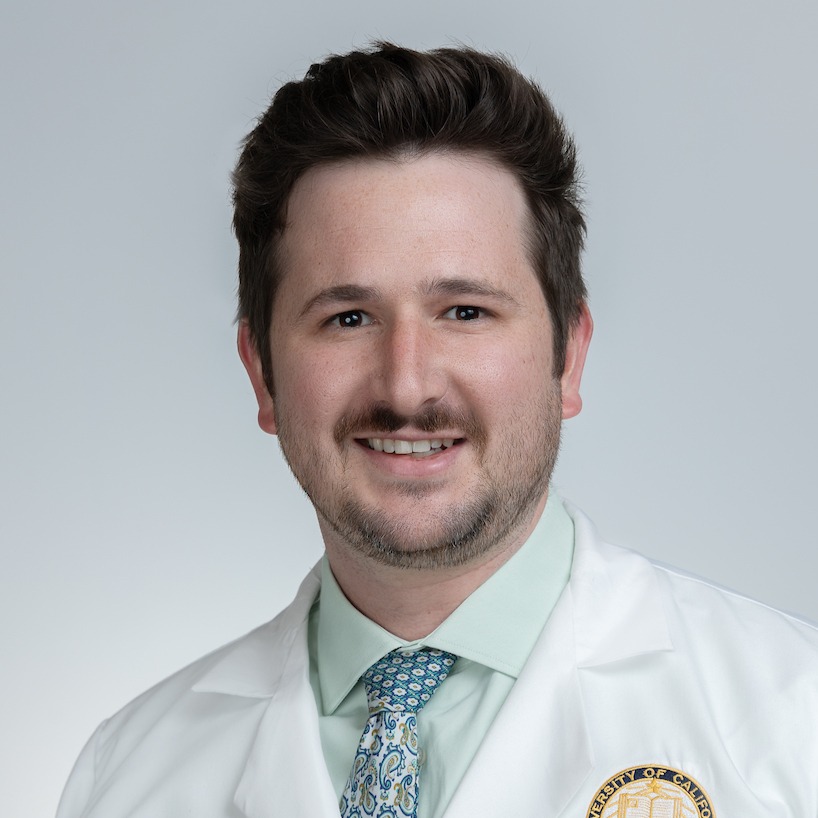
Kylie Hendrie, DO
Psychiatrist
Assistant Professor of Psychiatry
Kyle Hendrie, DO, is board-certified in adult and geriatric psychiatry. He currently practices outpatient geriatric psychiatry, electroconvulsive therapy, and management of psychiatric manifestations in Parkinson's disease and other movement disorders.
-
Professor of Neurosciences
Dr. Gonzalez served as Principle Investigator of the Hispanic Community Health Study/Study of Latinos (SOL), Neurocognitive Reading Center, which is the largest study of Latino neurocognitive health and aging to-date. Dr. González is PI of the Study of Latinos-Investigation of neurocognitive aging (SOL-INCA), which is a SOL ancillary study examining sociocultural, cardiometabolic and genomic risks of Mild Cognitive Impairment (MCI) and ADRD among diverse Latinos.
-
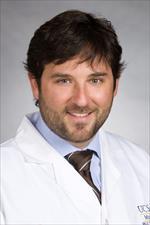
Associate Professor of Surgery
Director, Center For Voice and SwallowingDr. Weissbrod is attracted to Laryngology because it encompasses the most human of functions: breathing, talking, and swallowing. Eating and communicating are at the root of how we function on a societal and cultural level. Addressing these issues can lead to significant quality of life improvements, especially in patients who are professional voice users or who have complex disease processes such as head and neck cancer, stroke, or neurologic disease.
-
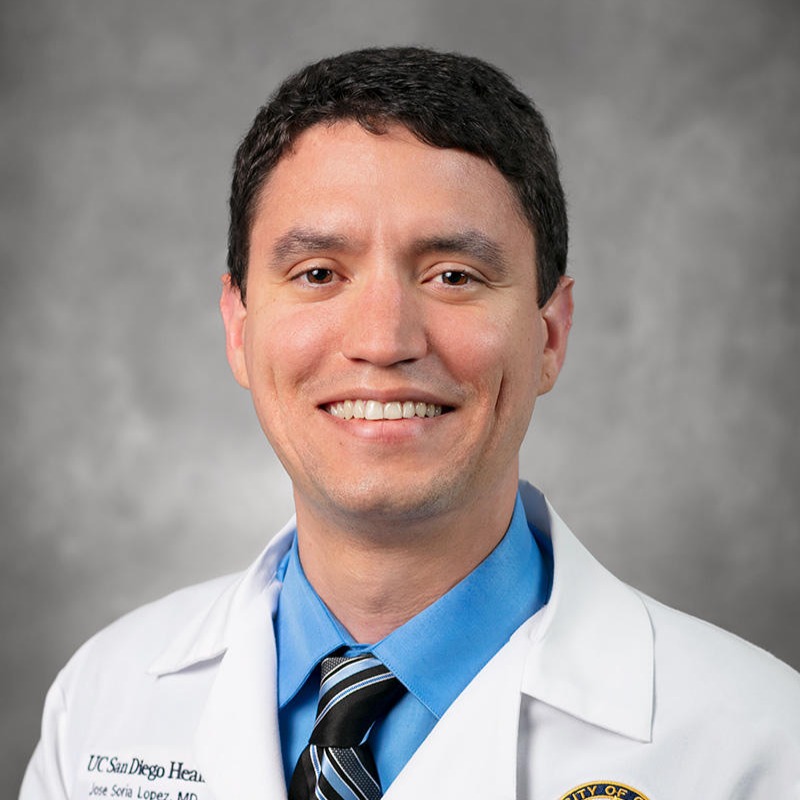
Assistant Professor of Neurosciences
Jose Soria-Lopez, MD, is a board-certified neurologist who treats patients with general neurology disorders, as well as memory disorders such as Alzheimer's disease and related dementias. He also evaluates and treats adult patients with Down syndrome who are experiencing cognitive changes.
Dr. Soria-Lopez is also interested in promoting awareness about dementia and Alzheimer's disease, particularly within the Latino community. His research interests include evaluating clinical-neuropathological correlations of dementia and neuropathological makers of cognition. He has given invited talks and published peer-reviewed articles on dementia to physicians and community groups.
-
Professor of Diagnostic Radiology, School of Medicine
Oregon Health & Science University
Dr. Sebastian Obrzut is a Nuclear Medicine physician with interest in molecular imaging of oncologic, neurodegenerative and cardiovascular diseases. He is also actively involved in the treatment of cancer using emerging radiopharmaceuticals with particular focus on prostate and neuroendocrine cancers.
As a scientist, he works to evaluate novel computational approaches in imaging informatics and machine learning to improve outcomes in patients with cancer and Parkinson’s disease. In addition, Dr. Obrzut serves as a reviewer in several radiology journals.
Dr. Obrzut is also a professor at OHSU’s School of Medicine in radiology. Throughout his career, he has mentored many radiology residents and medical students. He spent more than eighteen years on the faculty at University of California San Diego before joining OHSU in 2022.
Parkinson & Other Movement Disorders Center's
Scientific Collaborators
Meet our Scientific Collaborators
